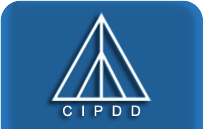Date: February 2011
Title: Peace, security and stability in Samtskhe-Javakheti - a community-informed strategy
Partners: GYLA and Saferworld
Donor: The programme and this report has been funded by the EU through the joint Saferworld/ Conciliation Resources projectEstablishing Conditions for Effective Conflict Prevention and Transformation following the August 2008 Crisis
Languages: Georgian, English, Russian
Pages: 33 (Georgian), 26 (English), 29 (Russian)
Introduction
This report summarises the results of a process to identify and plan for challenges to peace, security and stability in Samtskhe-Javakheti, undertaken by a group of local society representatives in 2010. It first describes challenges identified by the group, then analyses the three challenges they consider to be most important and provides recommendations for how they should be addressed. The resulting ‘strategy’ is community-informed. This means that the group of society representatives consulted with a wide group of communities at each step of the process (i.e. identification of challenges, analysis of key challenges and strategising solutions) in order to get their thoughts and perspectives. As such, this is not an ‘expert analysis’, but one grounded in the understanding and reality of people living in Samtskhe-Javakheti. We hope that this report will help local, national and international decision-makers to better address challenges facing the region.
This report is one outcome of the project Promoting broader and more informed dialogue on conflict, security and peace in Georgia. Jointly implemented y the Caucasus Institute for Peace Democracy and Development, the Georgian Young Lawyers’ Association and Saferworld, this project is designed to develop the capacity of Georgian civil society to analyse, and play a constructive role in policy development on, issues related to conflict, security and peace. The process involves a two-way conversation between representative groups and wider society in the regions of Kvemo Kartli, Samegrelo, Samtskhe Javakheti and Shida Kartli. It also involves regular meetings between representatives of these regions, to share outcomes from their respective analyses. The process has the following objectives:
1. to elicit information from community members about their perspectives on conflict issues
2. to provide more balanced and impartial information about conflict issues
3. to stimulate people to think about these issues in new and wider ways
4. to share perspectives between community members in the different regions.
The overall process consists of four stages (see diagram below). The purpose of the first stage was to understand community perspectives on the causes and effects of the August 2008 war in the four target regions, and the differences between the perspectives held by people in these regions. The results of this stage are captured in the report ‘Community perceptions of the causes and effects of the August 2008 conflict in Kvemo Kartli, Samegrelo, Samtskhe-Javakheti and Shida Kartli’. The second stage focused on deeper analysis of challenges for peace, security and stability in each of the target regions, while the third stage focused on the development of strategies to respond to key region-specific challenges. This report is one of four summarising the regional-specific results of stages two and three (the other three reports cover the remaining target regions). For the methodology used to analyse the challenges identified, and to develop corresponding ‘solution strategies’, please see the annex at the end of this report. The fourth and final stage is underway at the time of publication and involves representatives from all four regions working together to plan solutions to shared challenges at the national level.
The value of this process is that it promotes a deep and sustained dialogue among a consistent group of interlocutors, both within and between the four target regions. The strategies for peace, security and stability developed in this process for each of the four regions, and for the nation as a whole, will then serve as the basis for dialogue between Georgian civil society and policy-makers at the regional, national and international levels.
Back..

